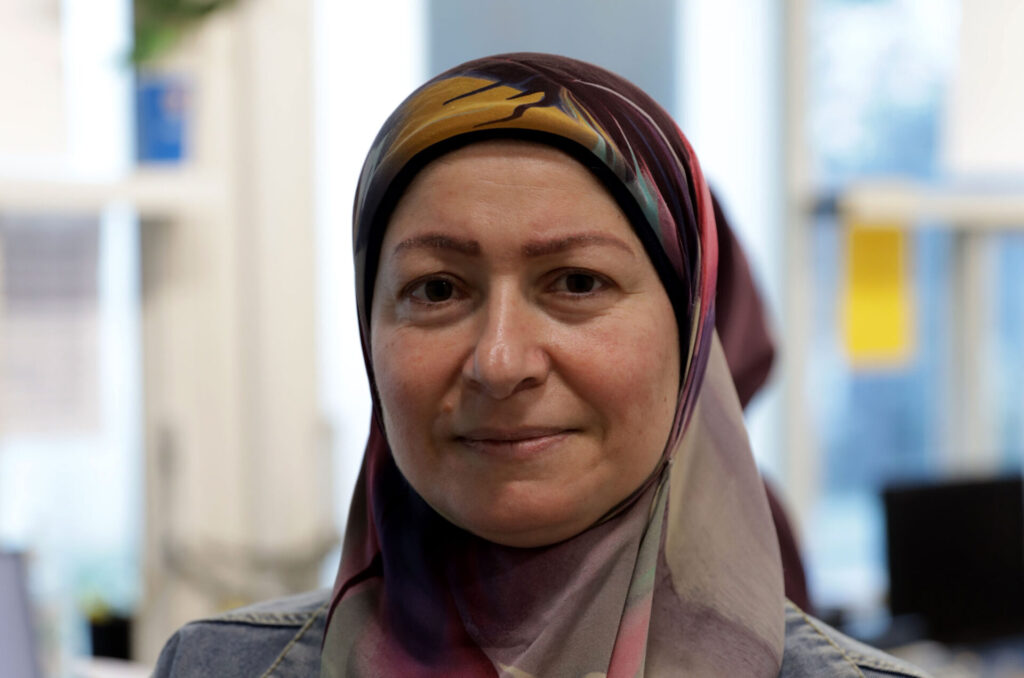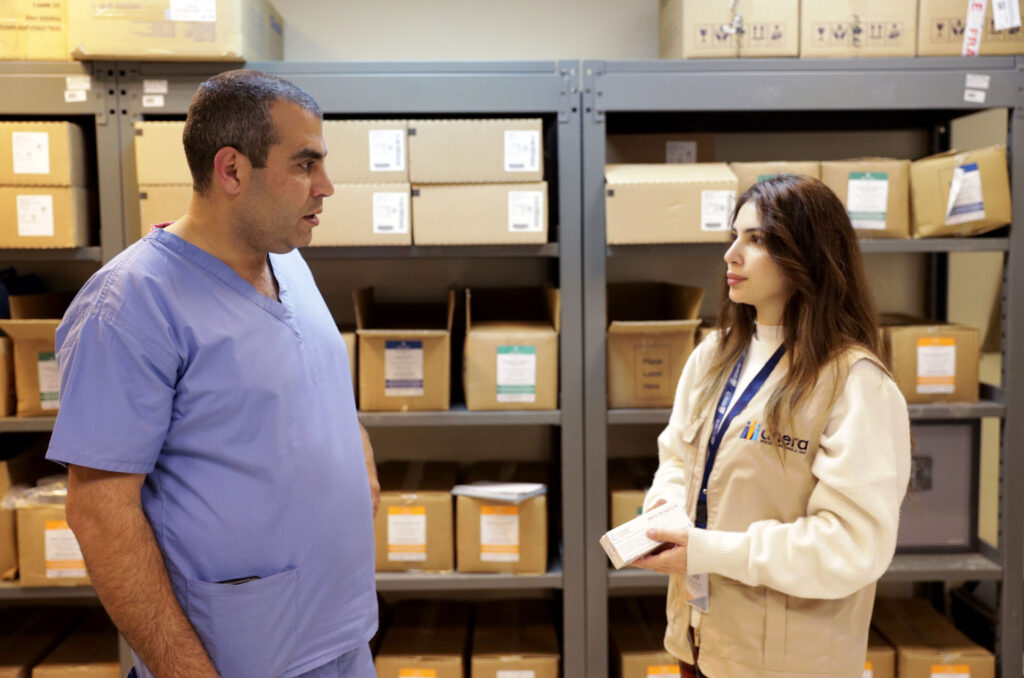Mar, 2009
Dressed as in a white lab coat, with a warm smile and a steady presence, it is easy to imagine Tawfiq Asaad as the doctor he is.
But Dr. Asaad’s easy nature belies the story of the Al Shifa Clinic, a story he himself has long since become part of.
Situated now in the new part of the Nahr El Bared refugee camp in northern Lebanon, the six-room facility is a mere fraction of what it once was.
“The clinic was in the old camp of Nahr El Bared, three stories above ground and one below,” Dr. Asaad said. “There were a lot of patients coming in because we were offering good services at low cost, and we were right in the middle of the camp so we were constantly busy.”
That changed dramatically in May 2007, when fierce fighting erupted between militants within the camp and the Lebanese Army. With thousands at risk in the crowded camp, Dr. Asaad and his colleagues continued working for one month, even as buildings around them were destroyed. The clinic itself was hit several times during the fighting as well.
“We were open even during the most heated times of fighting,” Dr. Asaad said. “We had limited resources but we provided emergency care and treatment for people with chronic illnesses.”
Forced finally to flee, Dr. Asaad headed for the nearby Baddawi refugee camp, where he volunteered his services at a clinic there. But his mind, and those of his colleagues, was on returning to Nahr El Bared as soon as the fighting stopped. That chance came two months later, and though the clinic had been completely destroyed, Dr. Asaad was undeterred.
“We were among the first people to return to the camp when it was possible to come back – around October 11th or 12th,” Dr. Asaad said. “We rented a garage that we split into rooms and began operating again.”
Working now out of a temporary shelter provided by the United Nations Relief and Works Agency (UNRWA), tasked with caring for Palestinian refugees, Dr. Asaad has more space than the rented garage offered. Provided quarterly with drugs donated by AmeriCares and delivered by Anera and Lebanese partner Health Care Society, the Al Shifa clinic is once again providing vital service to the people of Nahr El Bared. Here, two full time doctors and three full time nurses provide care to an average of 1,200 patients each month – 24 hours a day, seven days a week. Their staff bolstered by regular visits by a pediatrician and a gynecologist, Al Shifa handles the many health issues that arise from the crowded and unsanitary camp.
“The general environment here is extremely unhealthy, so a lot of people are having health problems,” Dr Asaad said. “It’s seasonal too – in the winter now we get bronchitis, tonsillitis, and sinus congestion. In the summer we get diarrhea, skin diseases and scabies.”
Though some shortages always exist, Dr. Asaad says he has the medications he needs on hand to treat most of what of the illnesses he faces. For camp residents, the services provided by Al Shifa are critical. Hampered by a wide array of ailments, they can access the clinic easily and receive the care they need, paying only symbolic payments for the drugs they receive.
“There is another clinic that isn’t too bad but I prefer to come here,” said Khalil Balloul, a camp resident living nearby who has visited the clinic several times since it reopened. “I’ve had a good experience finding what I need when I come here. I know if they have [the medications] here, they will give [them] to me with no problems.”
For Dr. Asaad, as with many in the Nahr El Bared camp, life here is still tinged with uncertainty. They hope to rebuild a new clinic, but the old section of the camp remains closed. Until they can begin rebuilding, they will continue working as they have, serving the residents of Nahr El Bared with a combination of determination, patience, and a quiet courage – bolstered in their efforts by the support they receive from AmeriCares and its partners.
“We save a lot of money by having the medications donated,” Dr Asaad said. “It helps us a lot.”


